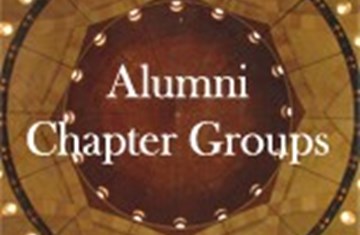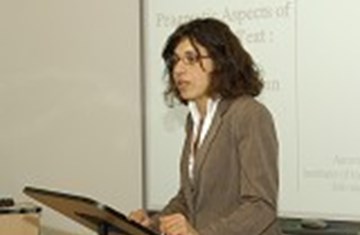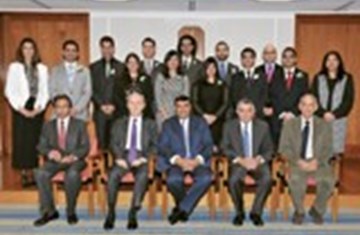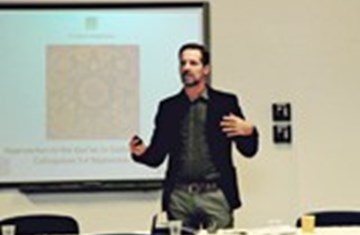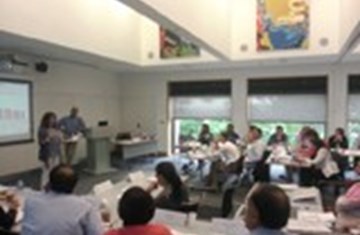Bridging Legal Modernity and Tradition in Muslim Contexts
Mr Keshavjee began by explaining ADR as a process that takes place when two or more people or institutions in a dispute seek to broker a solution without going through the state-based formal legal system. A third party intervener can help them arrive at a negotiated settlement, but the degree of control the third party can exert depends on the method that is used - ranging from arbitration to mediation and conciliation. ADR can be used for many situations such as divorce, maintenance and employment.
The lecture explored the reasons for the increasing popularity of ADR in recent years. These include the lengthy and expensive litigation process. The legal system in India, for instance, will have an estimated 30 million cases unresolved within the lifetimes of the litigants. Mr. Keshavjee stressed that despite its recent popularity, ADR must be seen as an age-old phenomenon found in many societies across the world. He offered several examples from the Holy Qur’an and the example of Prophet Muhammad - including his negotiation of the truce of Hudaibiyya in 628 CE with the Meccans. Mr Keshavjee also cited modern global parallels in the conduct of Mahatma Gandhi and Nelson Mandela, the latter drawing on the African concept of Ubuntu in which “everyone is connected”. This humanistic ideal takes away the fragmented and highly individualistic view of existence and gives dignity to every life.
The talk also touched upon the underlying principles of ADR, the processes that constitute it, and the specific techniques used to resolve disputes. This was followed by an overview of the role of the Shari‘a. Some recent high profile court cases in this regard were cited, such as those of Amina Lawal in Nigeria, Abdur Rahman in Afghanistan, Lina Joy in Malaysia, Nasr Abu Zayd in Egypt and Aisha Azmi in UK. The Shari‘a was also the main subject of the lively question-and-answer session that followed.
Amyn Sajoo in his welcome address explained the rationale for this talk, recalling the role of al-Sanhuri in drafting the modern civil codes of Egypt, Iraq, Jordan, Libya and Syria: “Civic modernity may have much to do with the rule of law, but if the rule of law is about formal systems alone it will fail to deliver the kind of civic modernity worth having.”
This lecture was part of the Contemporary Islam(s) and Muslims series. For more information on the Institute’s seminars and lectures, see the Seminars, Conference and Public lectures page. Dates and times of future seminars and lectures appear on the Forthcoming Events page.

